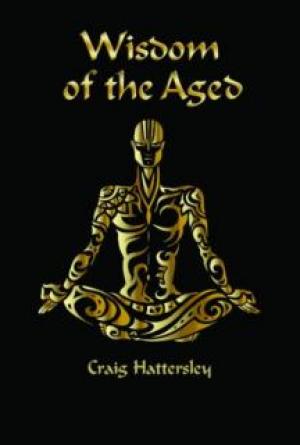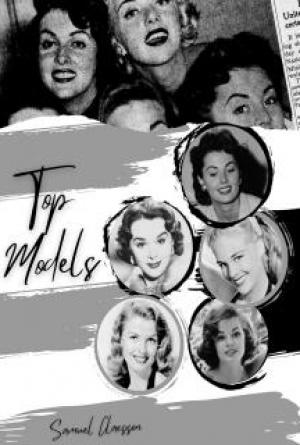INCIDENTS IN MISS SCHOFIELD’S LIFE.
Martha Schofield’s conception of an education included a great deal more than the mere matter of acquiring a fund of knowledge. She taught that knowledge without the ability to use it was worthless, and inspired every one coming under her influence with the necessity for a means of practicing what they were taught. This made her work intensely practical and enabled her students to succeed in overcoming difficulties as they saw her overcome them. The operation of her school, including the farm, the store and boarding house dormitories became a part of the curriculum and each student was provided with practical, concrete examples of every day business life with a solution for each worked out before the eyes of the whole school. The success which has and is attending the efforts of her students in many lines of endeavor is one of the best arguments we have to advance for the extension of practical instruction, especially among the Negroes who have evidenced a singular ability in assimilating it and imparting its usefulness afterwards.
While every Schofield scholar received a deep impression of the power which knowledge gives no want of attention was directed to the evil which invariably attends the wrong use of it. This developed a course in moral philosophy which, it is to be supposed, is responsible for the high average maintained by the graduates of this school in the deportment of their lives. Not one of the many receiving their education at the school has ever been convicted of crime or sentenced to jail or servitude in a penal institution. This contradicts and discredits the statement often heard that the education of the Negro has been attended by an increase of crime among the members of the race. While unsupported by the facts with regard to the students of all other Negro schools the statement could have basis only in those schools and colleges where the relation of morals to breeding is ignored altogether or made of secondary importance only. Certain it is that Martha Schofield impressed each one of her students with a higher regard for truth and virtue than for anything else in this world.
Without the morality to live and act honorably education to her was a curse, and she had the faculty of making her students a co-partner with her in sharing her convictions along lines of right conduct and moral grandeur as well as excelling in efficiency in all the arts taught.
Martha Schofield was impelled by a power in her heart which inspired sympathy to give the very best of her life in help of the Negro. So she was very particular in her work that what she imparted really should inspire her disciples to think right and live right. This enforced the necessity for a discipline that may be considered severe by some but many are there today who bless her from the bottom of their hearts for holding them strictly to account in their work that in the final result they might be the possessors of a future worthy of the instruction received at her hands. She never enforced iron-hand discipline without the glove of charity and her advice always sparkled with such sincerity and sympathy as to make it palatable.
Not only was the work of Miss Schofield opposed by the antagonism of race prejudice, but opposed by a want of a precedent. There were few Negroes of education to refer to as examples of what education may be expected to do for one with the intelligence and industry necessary to acquire it. Only a few years before Miss Schofield began her work the instruction of Negroes was made unlawful by some of the States in the South and as a result the greatest ignorance prevailed among them. Not five per cent. could either read or write and quite a number possessed no Christian name at all. They lived principally in one room cabins, whole families of them, and subsisted on the coarsest and most unwholesome food imaginable. There was no respect anywhere for sanitary science laws and all this had the effect to greatly handicap Miss Schofield at the beginning of her effort.
One of the rules of her school which she enforced early in her career was that no child could enter school who did not have a name. As all were eager to learn and made tremendous sacrifices that their children might do so this rule produced a mild sensation among some of the older people who had not the intuition to go about the work of obtaining a name for their offspring. But the ruling finally served to obtain names for all, and these in time became legal, some of them appearing just as Martha Schofield gave them on the tax books to this very day.
Perhaps the origin of the name Rahab Obedience, for many years an employe in Miss Schofield’s room, was one among the most unique. Accompanied by her child, who had been sent home the day before for want of a name, Rahab called early one morning on Miss Schofield and expressed great distress over the possibility of her not being able to comply with the entrance regulations and keep her little boy in school.
“Missus,” spoke Rahab, “Banjo be’n tellin’ me dat yo’ sais he mus’ hab some trimmins’ ’fore he kin com’ to yo’ sc’ool an’ clear befo’ dee Lawd, Missus, he aint got non’ ’side frum Banjo’ and hee jist caint git non.’ Dat chile nebber aint had any daddy, Missus!”
“Every child that enters this school” said Miss Schofield, “must have a name or be given one, else we can not teach him. Perhaps, we may give your son a name.
“What is your name? All children without a father bear their mother’s name.”
“Mer name, Missus?” queried Rahab in surprise. “I be’n tinkink yo’ no’ mer name lon’ time.”
“Yes, I know; but what is your Christian name—the other part of your name? Rahab who?”
“O, yas’am, I ’noes w’at yo’ means now, but dats all de name I habs—jest Rahab,” said the woman as she looked hopefully at Miss Schofield for some means by which a name could be found for her son and he be allowed to remain in school.
“Well, can’t you suggest some name for your son?” asked Miss Schofield. “What name would you like for him to be known by?”
“We’l Missus,” said Rahab, “mer old marster allus tol’ us dat Obedience wus der bes trate in de karecter of a cullud pusson an’ so I bleeves I’d jest lak to hab mer boi call’d Banjo Obedience.”
“Very well,” replied Miss Schofield, “hereafter he shall be known as Banjo Obedience and we shall know you as Rahab Obedience.”
“Dat’s jest alritee ef Banjo kin cum ter sc’ool wid dat name. Don’t care w’at yo’ cal’ ’em nor how much yo’ beats ’em jest so yo larns em sometings, som’ gud man’ers lak he ole marster had.”
In a very few days after this unusual interview Rahab herself was given a position in the Schofield household where she was employed for many years.
Among all the mourners at the funeral none there were more deeply affected by the passing of Miss Schofield than the servants of her household.
One of the most beautiful traits of Miss Schofield’s character is to be seen in her treatment of the Negro servants in her employ. The excellent service which “Aunt Amy” rendered to her gave her a high appreciation of the Negro for domestic duties, and inspired the sentiment now common over the country that the Southern white people do not appreciate the value of Negro servants because they have never had the dissatisfaction attending the employment of other domestics of different nationality.
“Aunt Ann,” another employe for thirty-five years, equally distinguished the race by excelling in the art of domestic service. Rahab Obedience, Darius Bauknight and Charlotte, all so well pleased Miss Schofield with the quality and quantity of their services that each received recognition in her Will.
Martha Schofield was not only admired and loved by all her students and servants—she was idolized by them. Wherever she went in the South or North she always found a number to do her honor, and honor shown her by the humblest and lowest of the Negro race was to all appearances as much appreciated as that shown by the great poets and writers, many of whom knew her and delighted in showing her the respect which one great mind has for another.
Among the distinguished people who expressed a deep appreciation of her strength of character and firmness of purpose in carrying on her work was John G. Whittier, the Quaker Poet, who wrote her several pleasing commendatory letters, and dedicated all his works to the spirit which inspired her to carry on her work in the face of difficulties that would have discouraged into inactivity anybody but Martha Schofield. Other notable people who paid tribute to Miss Schofield were Lucretia Mott, the distinguished reformer and Miss Francis Willard.
At her home in Aiken she was highly respected for her strength of character in holding fast to her convictions and for her intelligence and absolute honesty.
The following resolutions by the Woman’s Christian Temperance Union, a white organization to which Miss Schofield belonged, were passed at a recent session:
“RESOLUTIONS.
“Aiken, S. C., April 17th, 1916.
“Whereas, God, in His infinite wisdom, has seen fit to take from us, our sister and earnest co-worker, Miss Martha Schofield; We, the members of the W. C. T. U., Aiken, S. C., do hereby offer the following resolutions:
“1st. That in her passing away the W. C. T. U. has lost one of its earnest workers.
“2nd. That we extend to her neice and to her companion, Mrs. Taylor, our deepest sympathy.
“3rd. That a page in our Minute Book be inscribed to her memory.
“4th. That a copy of these resolutions be sent to her neice, to Mrs. Taylor and to the County papers for publication.
META SUMMERALL,
HATTIE P. HILL,
TWEETIE M. CARTER,
COMMITTEE.”
If one ever questioned whether the services of Miss Schofield were appreciated by the colored people of Aiken all doubts must have been removed by the demonstration of Negroes at the funeral on Monday, February 3, and again on the same day as the casket was borne from the Schofield home to the railroad station. The line of march included over 1,000 school children and citizens and the mass was so great at the train shed as to interfere with the movement of all traffic. As the train moved off the citizens joined in the favorite song of the lamented lady and sang so sadly and feelingly as to bring tears to the eyes of all: “Steal Away, Steal Away to Jesus.”
Among hundreds of telegrams, letters and personal messages received at the school following the death of Miss Schofield, the latter are typical:
“I am here to give my testimony of the value of the life of Martha Schofield to my race. She was one of the bravest, kindest women I ever knew. It is true that Martha Schofield was a fighter. She dared to contend for what she believed was right, but always took counsel, weighed things carefully, and, when she took a stand that she believed was right, believing she was right, there was no earthly power to turn her from her course. Martha Schofield is not dead—she lives in the memory of her students scattered all over South Carolina and other States. She will live in the memory of their children and their children’s children, for there are few colored homes in which her name and deeds are not recounted in the family circle.”
LUCY LANEY,
Principal Haines Institute, Augusta, Ga.
“In the death of Miss Martha Schofield the Negroes have lost a true friend of long standing, and the cause of the great social uplift here in the South has lost an earnest and effective worker.
“Miss Schofield was my personal friend and adviser for many years. I think she has accomplished a most unselfish life work and very effective.”
WALTER S. BUCHANAN,
President Agricultural & Mechanical College,
Normal, Alabama.
Miss Schofield did a valuable, a useful, a noble work for my race, and I am glad so many of the colored people in Georgia and South Carolina have joined in the general chorus of sorrow and sympathy in consequence of her death. A hundred years from now, when the history of the South shall be written anew, the brightest page in the story will be that on which shall be recorded the lives, labor, and sacrifices of the white men and women from the North who came into the South directly after the war and brought the torch of civilization to a freed race and taught them the way of truth and righteousness.
PROF. S. X. FLOYD,
Principal Gwinnett School,
Augusta, Ga.
The following resolution was unanimously adopted by the faculty of the Schofield school, in respect to the memory of Miss Schofield:
“Resolved, That the Schofield School most sorrowfully realizes that in the translation of the spirit of this truly great woman, it has sustained an irreparable loss. In the departure from our midst of this illustrious character, we solemnly obligate ourselves to ever reserve prominent places in our memories for the most worthy example set before us by the founder and friend of the great work. The greatest monument to the life of Miss Schofield is the school which bears her name. This most splendid plant, now in the flower of its prosperity, marks the fruitful result of the untiring zeal and the dauntless courage possessed, and the patient efforts put forth by the Founder who so faithfully labored for and among the freedmen of our community.”








